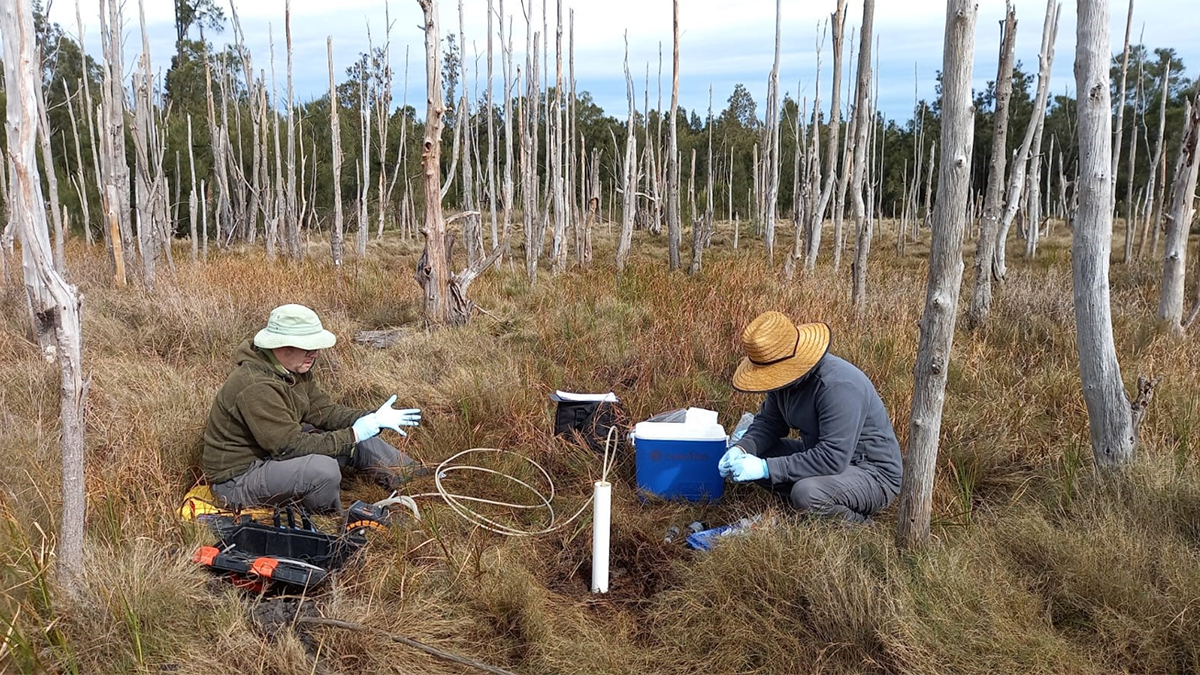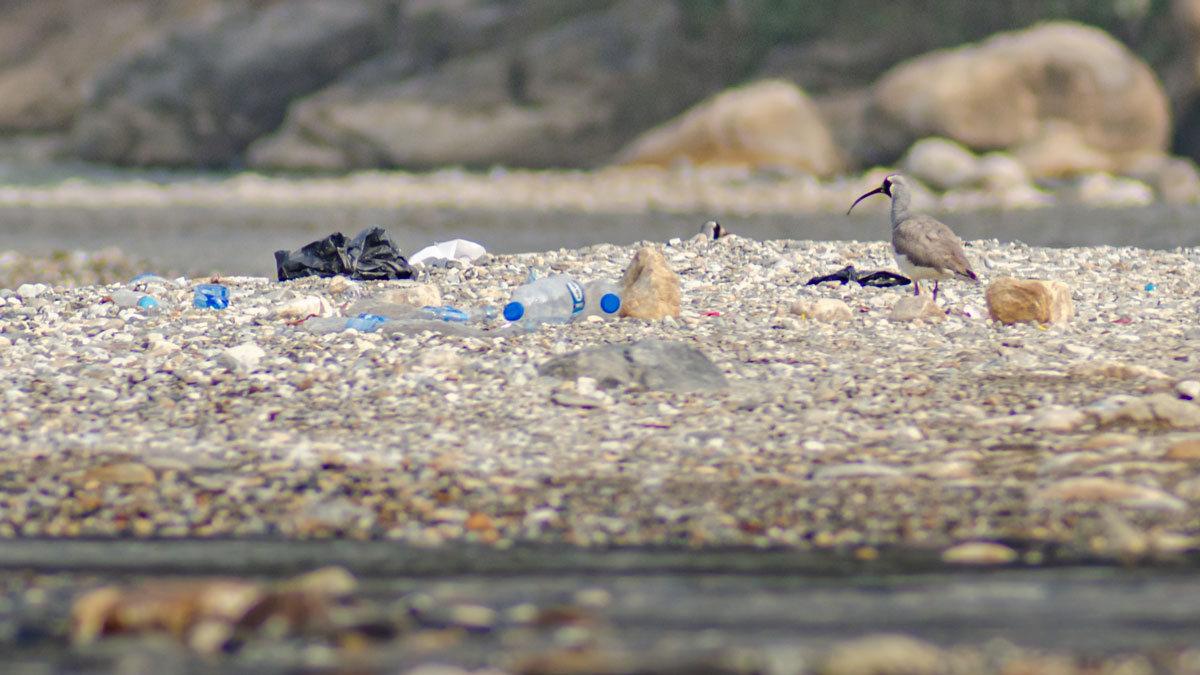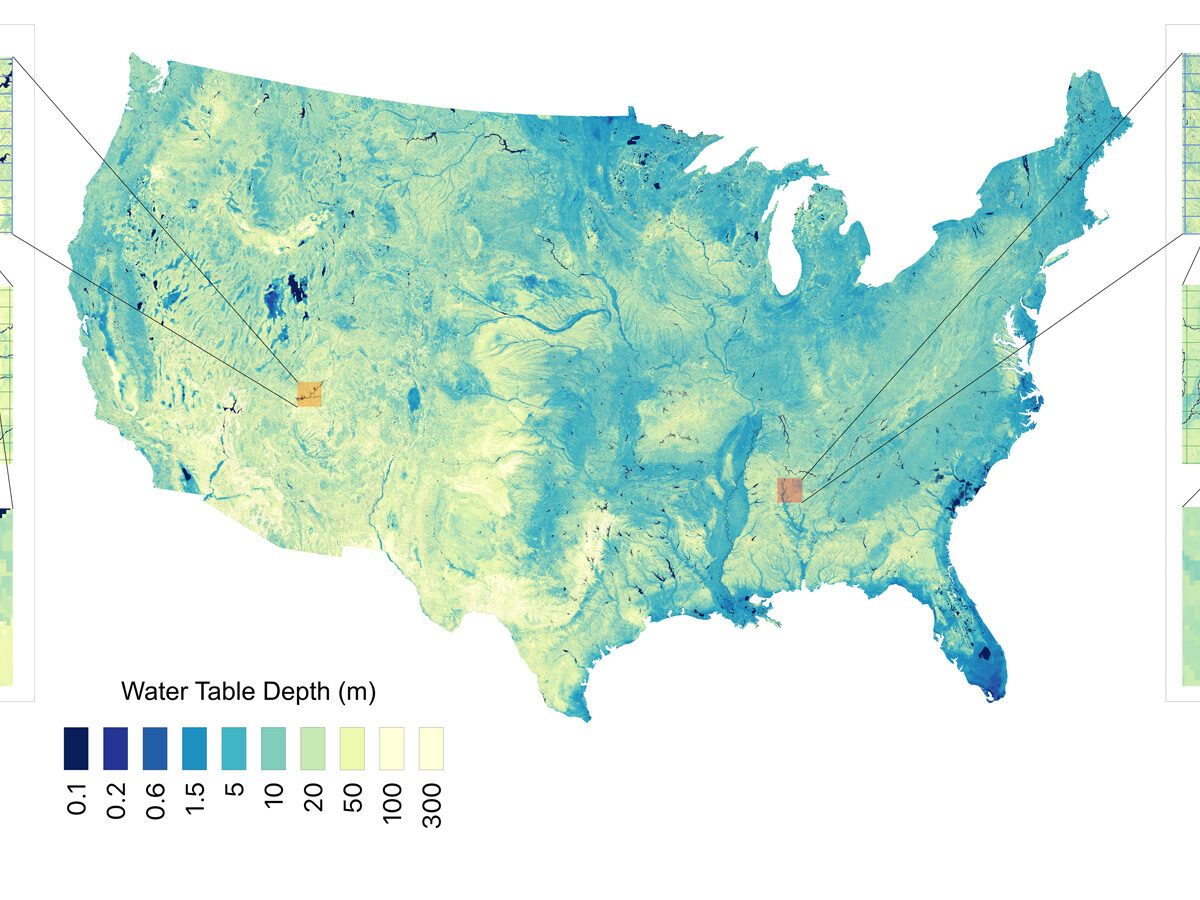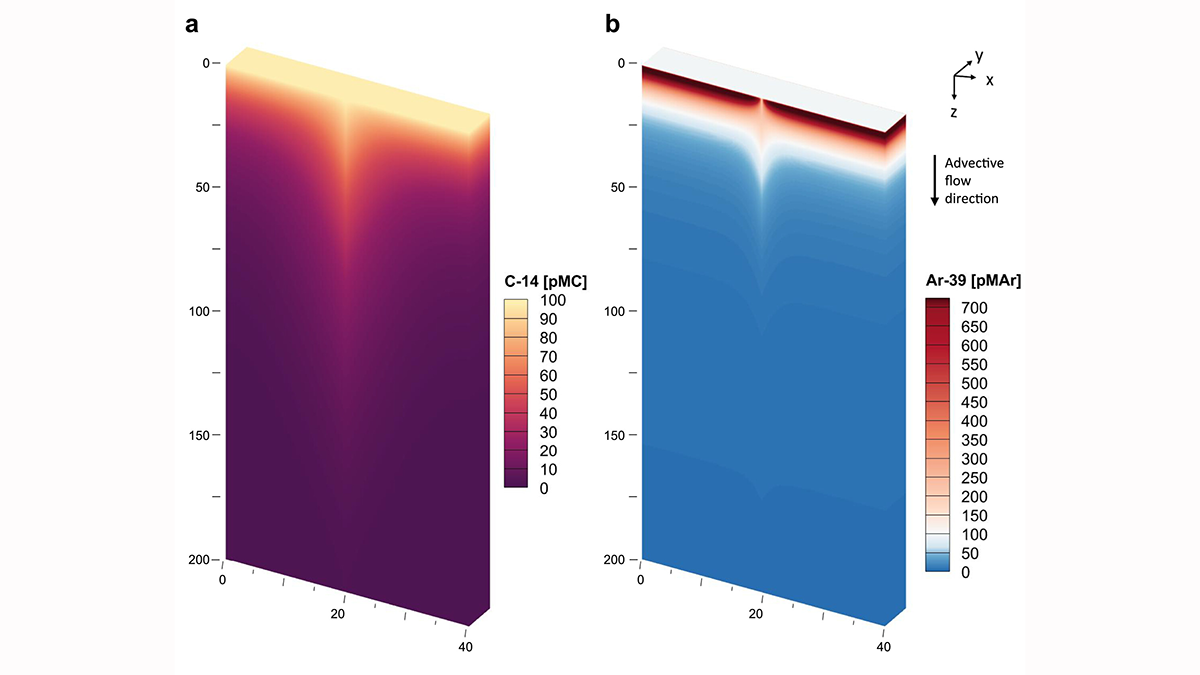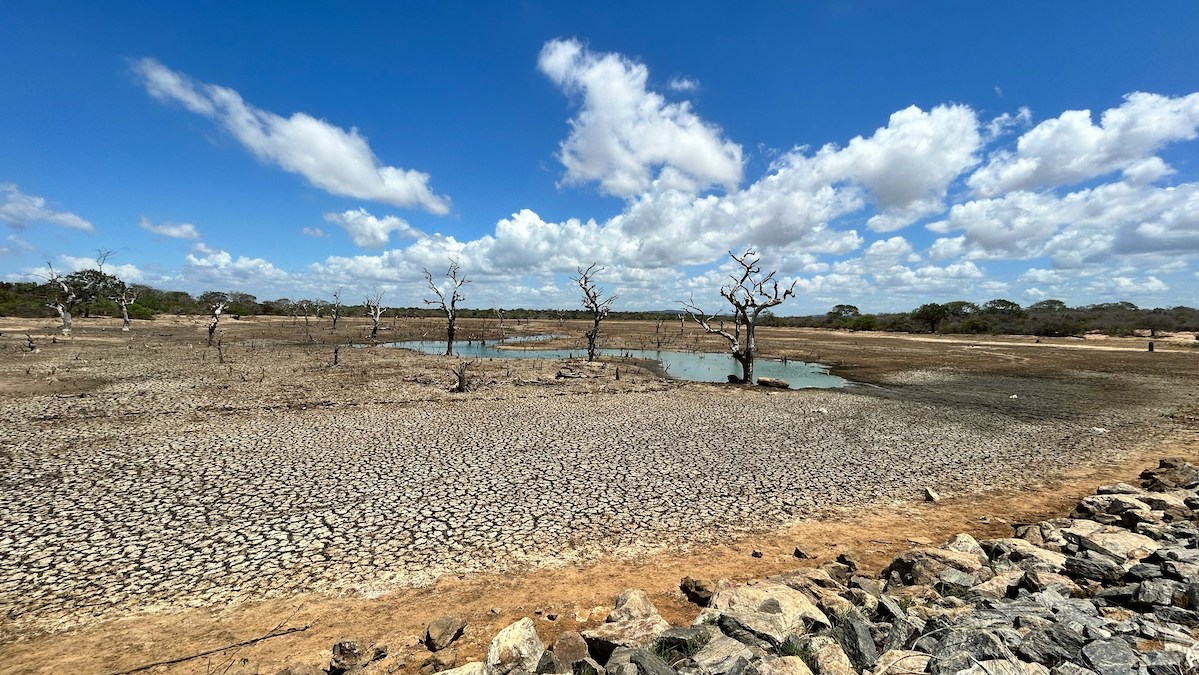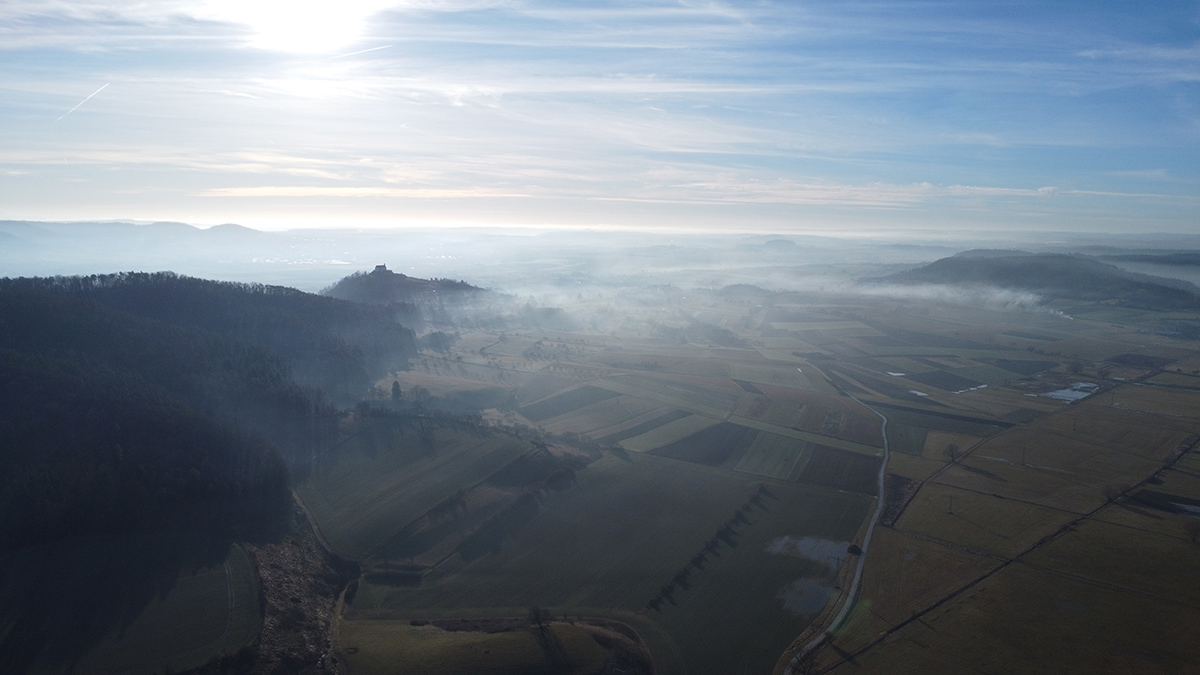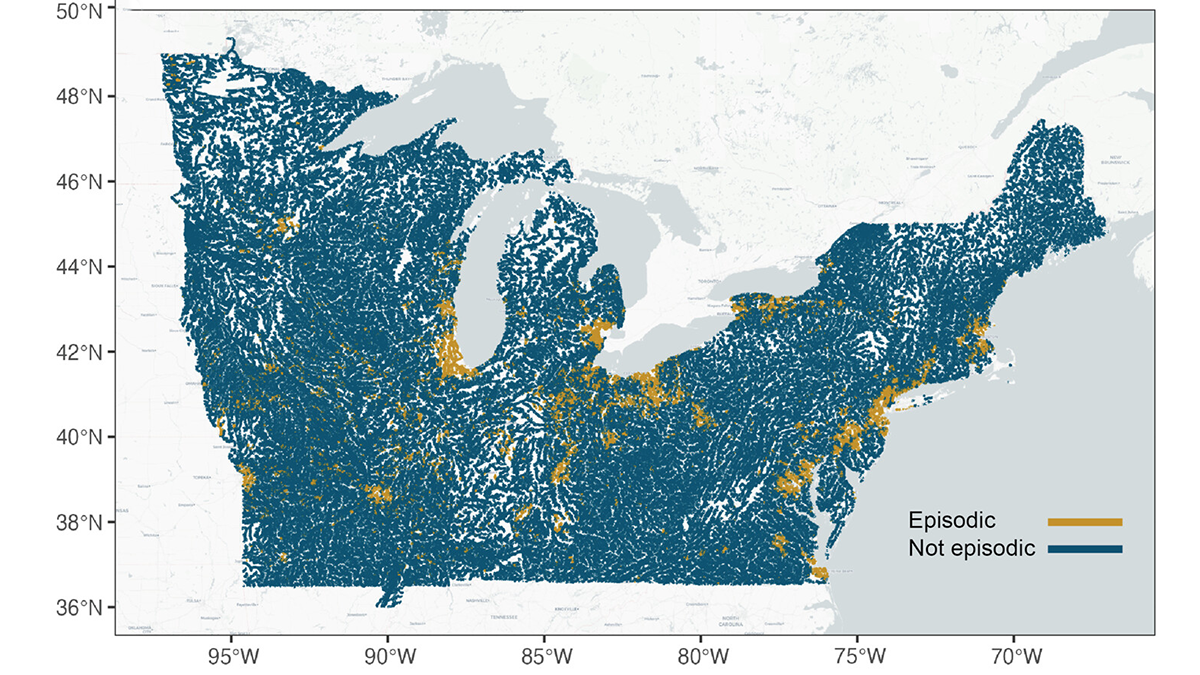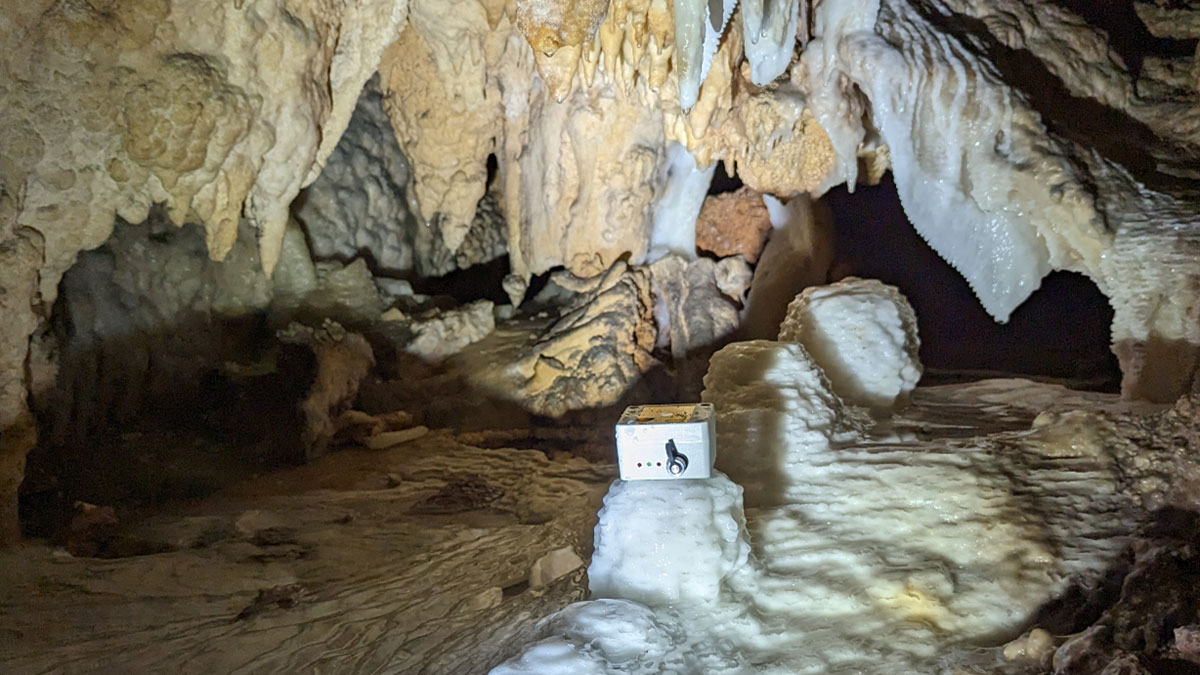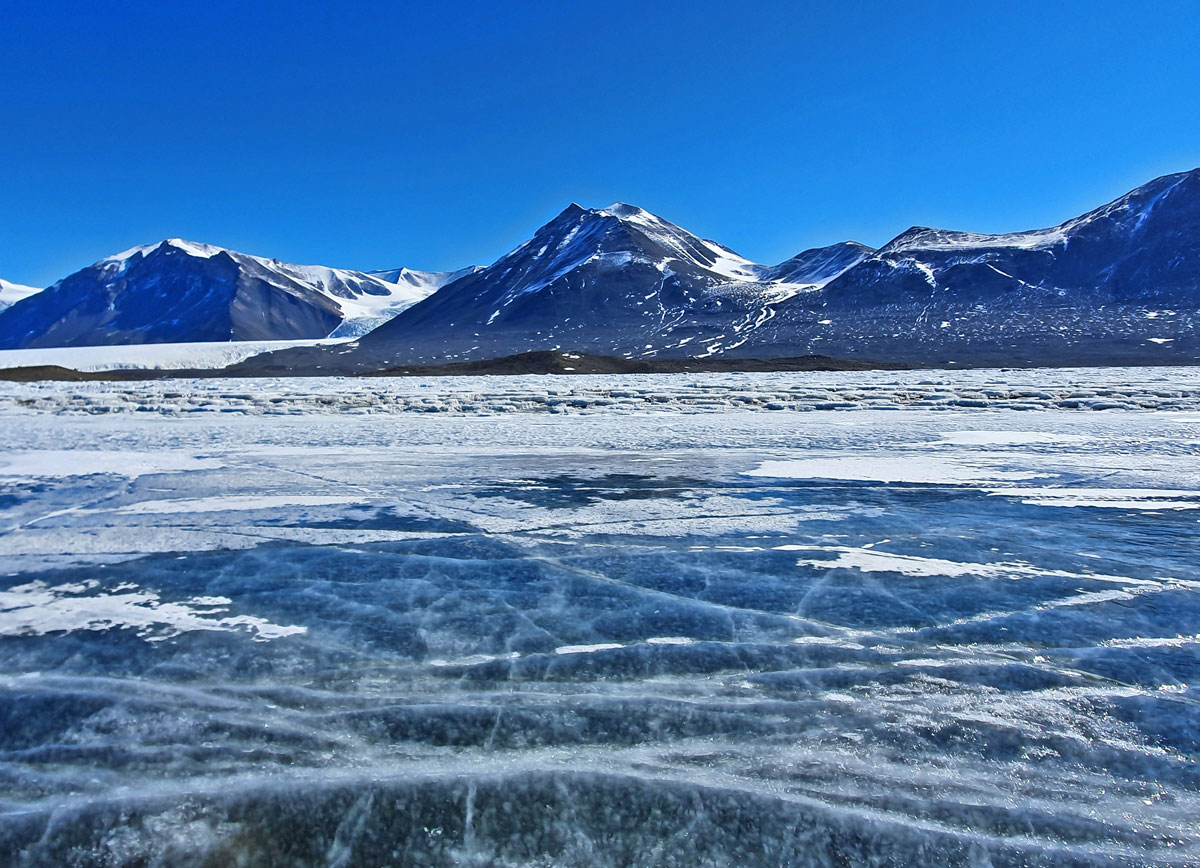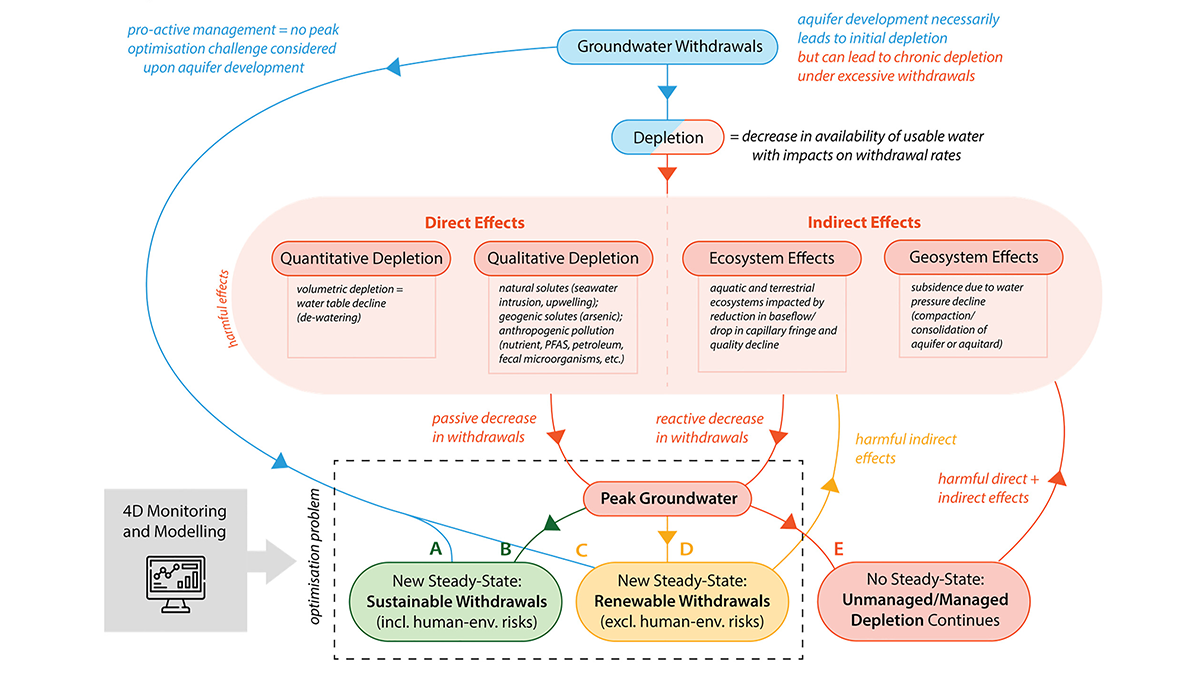Coastal wetland restoration offers major carbon benefits, and understanding groundwater processes helps explain how these ecosystems store carbon over the long term.
groundwater
Pollution Is Rampant. We Might As Well Make Use of It.
Human-made substances hold dangers for the environment, but they also give scientists a view into recent history.
Report: 13 Great Lakes’ Worth of Water Underlies the Contiguous United States
Researchers used 1 million data points and a machine learning algorithm to estimate groundwater stores with higher resolution than ever before.
Calibrating the Clocks: Reconciling Groundwater Age from Two Isotopes
A new quantitative model corrects for tracer-based age biases from 39Ar and 14C isotopes leading to more accurate estimates of groundwater residence times.
We Are “Living Beyond Our Hydrological Means,” UN Report Warns
Humanity has overspent and depleted freshwater in the world’s aquifers, glaciers, wetlands, and other natural reservoirs to an irreversible degree, according to a new United Nations report.
Microbial Genes Could Improve Our Understanding of Water Pollution
New research in Germany’s Ammer floodplain examines microbial biomarkers to help improve modeling of denitrification.
Episodic Tales of Salt
When episodic pulses of road salt hit after a winter storm, the impact can be like a lightning strike for the environment.
When Does Rainfall Become Recharge?
Counting drips in caves is helping to reveal how much precipitation is needed to start refilling underground aquifers.
The Land Beneath Antarctica’s Ice Might Be Full of Water
Seismic surveys hint at the extent of a potential groundwater system in the White Continent.
Avoiding and Responding to Peak Groundwater
A new review shows how rising demand, shrinking supplies, and policy decisions together shape when groundwater use peaks and what can be done to avoid long-term depletion.

